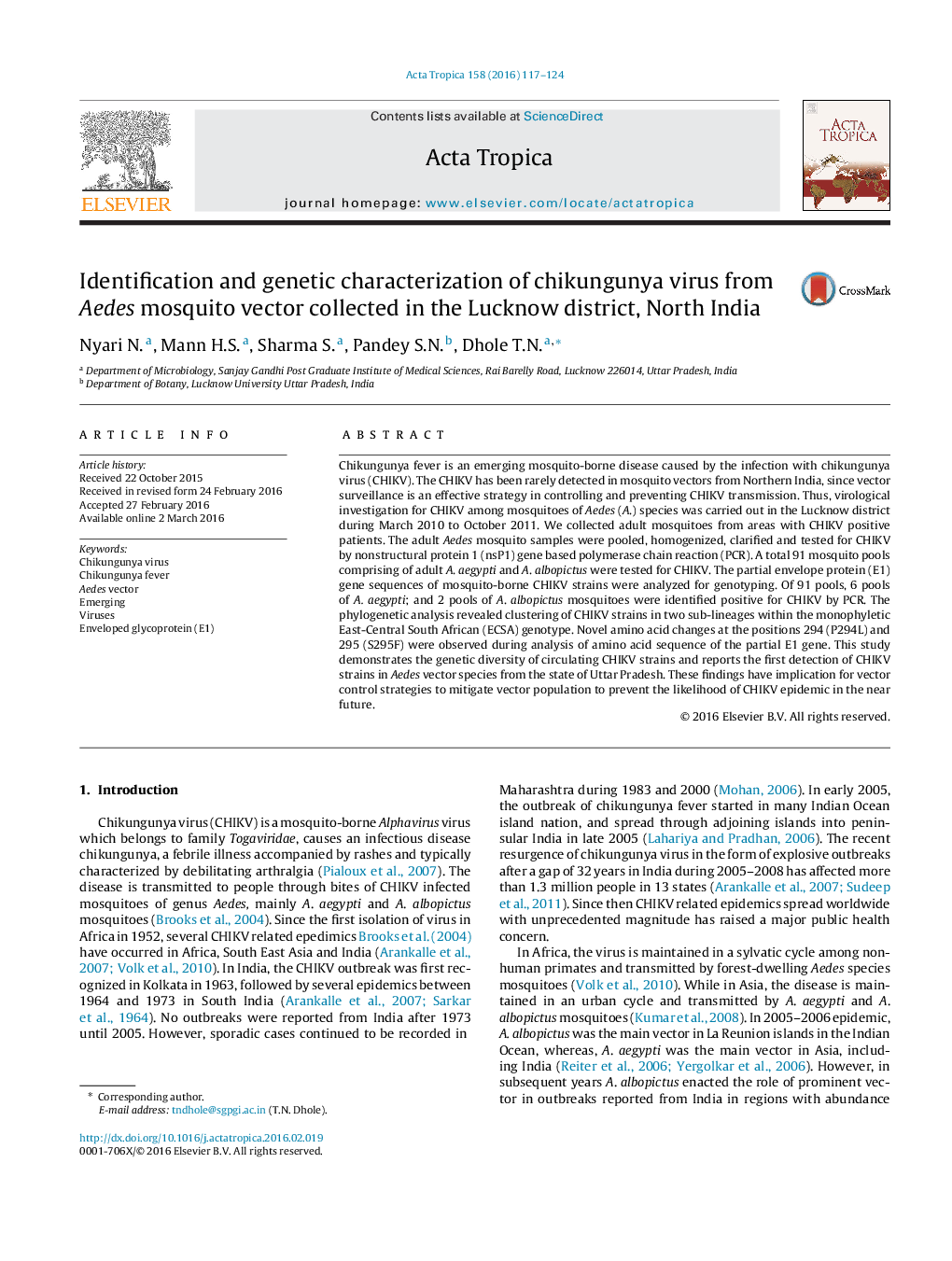| Article ID | Journal | Published Year | Pages | File Type |
|---|---|---|---|---|
| 6126584 | Acta Tropica | 2016 | 8 Pages |
Abstract
Chikungunya fever is an emerging mosquito-borne disease caused by the infection with chikungunya virus (CHIKV). The CHIKV has been rarely detected in mosquito vectors from Northern India, since vector surveillance is an effective strategy in controlling and preventing CHIKV transmission. Thus, virological investigation for CHIKV among mosquitoes of Aedes (A.) species was carried out in the Lucknow district during March 2010 to October 2011. We collected adult mosquitoes from areas with CHIKV positive patients. The adult Aedes mosquito samples were pooled, homogenized, clarified and tested for CHIKV by nonstructural protein 1 (nsP1) gene based polymerase chain reaction (PCR). A total 91 mosquito pools comprising of adult A. aegypti and A. albopictus were tested for CHIKV. The partial envelope protein (E1) gene sequences of mosquito-borne CHIKV strains were analyzed for genotyping. Of 91 pools, 6 pools of A. aegypti; and 2 pools of A. albopictus mosquitoes were identified positive for CHIKV by PCR. The phylogenetic analysis revealed clustering of CHIKV strains in two sub-lineages within the monophyletic East-Central South African (ECSA) genotype. Novel amino acid changes at the positions 294 (P294L) and 295 (S295F) were observed during analysis of amino acid sequence of the partial E1 gene. This study demonstrates the genetic diversity of circulating CHIKV strains and reports the first detection of CHIKV strains in Aedes vector species from the state of Uttar Pradesh. These findings have implication for vector control strategies to mitigate vector population to prevent the likelihood of CHIKV epidemic in the near future.
Related Topics
Life Sciences
Immunology and Microbiology
Parasitology
Authors
Nyari N., Maan H.S., Sharma S., Pandey S.N., Dhole T.N.,
